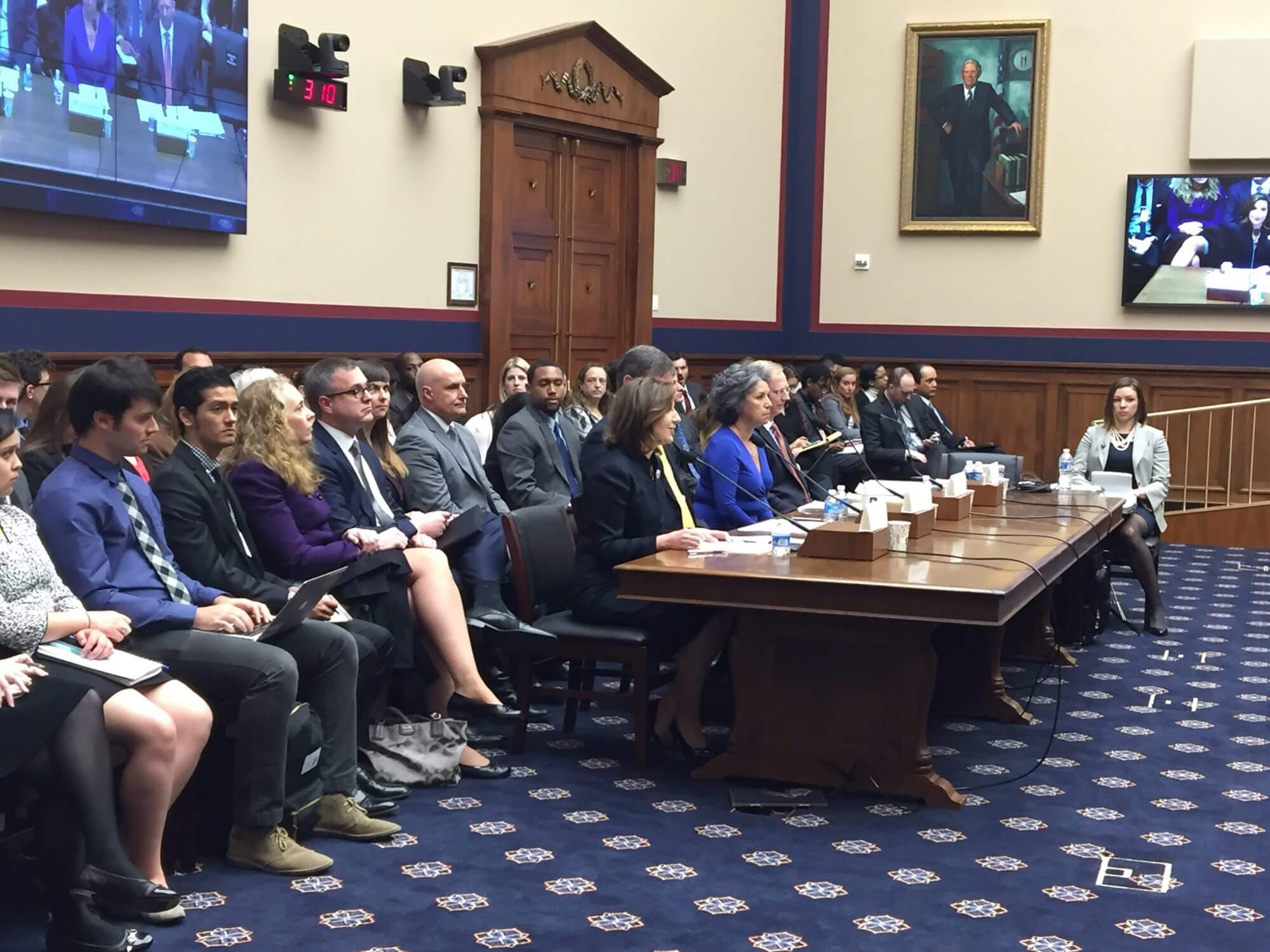WASHINGTON– When the No Child Left Behind Act was rewritten by Congress last December and passed with bipartisan support, few politicians were sad to see the Bush administration education reform law go.
However, House Democrats on the Education Committee’s K-12 panel on Wednesday made it clear that because the new law shifts more education control to local governments, they must be held responsible for making sure disadvantaged students are not underserved.
The new law, the Every Students Succeed Act replaces the unpopular federal assessments and standards of No Child Left Behind with more control at the state and local level. The Department of Education can work with states to create new education rules, but it can no longer require or give incentives to states to adopt certain assessments or rules.
Because states will be able to establish their own education standards, however, Democrats worry that they may water down previously high expectations. If the Department of Education cannot dictate a national standard of education, school districts might let disadvantaged students slip through the cracks, said Rep. Suzanne Bomanici, D-Ore.
“Some students, including students with disabilities, effectively disappear,” Bomanici said.
National education laws such as ESSA were created to protect the civil rights of students, especially minorities or at-risk children, as several subcommittee members noted. The education system contains significant numbers of vulnerable populations; about 40 percent of K-12 students are black or Hispanic, 19 percent are learning English and 13 percent receive special education, according to the National Center for Education Statistics.
These minority students benefit from having federal regulations in place so Washington can hold schools accountable when performance slips, said Selene Almazan, legal director for the Council of Parent Attorneys and Advocates, in her testimony before the subcommittee.
Oklahoma State Superintendent Joy Hofmeister said that the federal government should be able to guide the creation of new standards, but it’s more important to empower local leaders to be decision-makers. An education system that would empower students in one city might be disastrous in another, she said. Districts need flexibility to best serve their students.
“Hold us accountable, but don’t tell us how to achieve that,” she said.
If states can implement ESSA as intended by Congress, problems of educational equity can be addressed efficiently on a district level, said Rep. Todd Rokita, R-Ind., the subcommittee chairman and one of the law’s authors. After all, he said, local leaders are held accountable to the ballot box.
“Ms. Hofmeister, it’s going to be up to you now to decide what success is and what it looks like,” he said.


